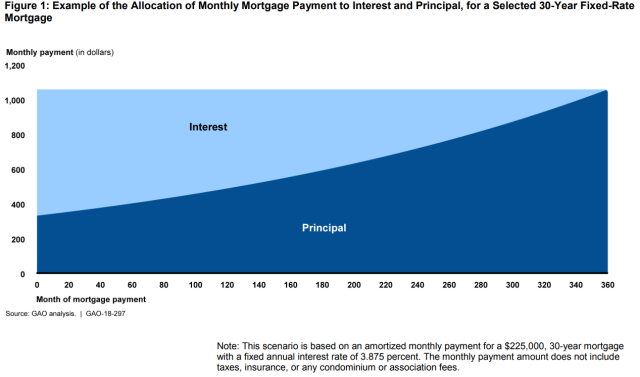Exploring the Various Kinds Of Equity Release Mortgages Available Today
Equity Release home loans present different options for homeowners aged 55 and over. equity release mortgages. These financial products satisfy various needs and choices, enabling individuals to gain access to funds from their residential or commercial property. From lifetime home mortgages to common appreciation home loans, each type offers distinctive benefits. Understanding these options is essential for making informed decisions. What aspects should one take into consideration when picking one of the most appropriate equity Release strategy? The information that follow might clarify this crucial topic
Comprehending Equity Release Mortgages
Equity Release home mortgages give homeowners, generally those aged 55 and over, with a way to access the value bound in their residential or commercial property without requiring to sell it. This monetary alternative permits individuals to convert a section of their home equity into money, which can be made use of for different functions, such as home renovations, paying off financial obligations, or financing retirement.Equity Release can take various kinds, yet it basically includes borrowing against the value of the home while preserving ownership. Home owners can pick to obtain a round figure or a collection of smaller sized settlements, relying on their financial requirements and preferences.Additionally, the amount readily available for Release is influenced by the home's worth, the property owner's age, and certain loan provider requirements. In general, comprehending equity Release home loans is important for property owners to make educated decisions concerning taking advantage of their home's equity while considering the long-term implications.
Lifetime Mortgages
Life time home loans stand for among one of the most preferred types of equity Release. This monetary item allows house owners, typically aged 55 or older, to obtain versus the value of their residential property while preserving possession. The car loan, which is secured against the home, accumulates rate of interest with time but does not require month-to-month settlements. Instead, the lending and built up passion are settled when the property owner passes away or relocates right into long-term care.Lifetime home mortgages supply versatility, as debtors can choose to get a swelling amount or choose a drawdown facility, accessing funds as needed. Importantly, several strategies come with a no-negative-equity assurance, making sure that borrowers will never owe even more than the worth of their home. This function supplies assurance, enabling individuals to enjoy their retired life without the anxiety of diminishing their estate. In general, life time home mortgages function as a feasible option for those seeking economic assistance in later life.
Home Reversion Plans

Drawdown Lifetime Mortgages
While many home owners look for ways to access their wealth, drawdown life time home loans offer an adaptable option that enables people to Release funds gradually. This kind of equity Release home loan enables home owners to obtain against the value of their residential property while retaining ownership. Unlike traditional lifetime home mortgages, drawdown strategies permit borrowers to access a part of their equity upfront and take out additional funds as required, up to a predetermined limit.This attribute can be particularly beneficial for those that desire to handle their financial resources meticulously, as it decreases interest build-up by only charging rate of interest on the amounts drawn. Additionally, drawdown lifetime home mortgages typically feature a "no adverse equity guarantee," making certain that borrowers will certainly never ever owe greater than their home's value. This choice fits senior citizens that prefer monetary safety and security and versatility, enabling them to meet unanticipated expenditures or preserve their lifestyle without needing to market their home.
Boosted Life Time Mortgages
Enhanced Lifetime Home loans provide distinct benefits for eligible property owners seeking to Release equity from their homes. Understanding the eligibility standards is necessary, as it establishes who can take advantage of these specialized fundings. It is likewise important to assess the prospective downsides associated with boosted options, ensuring a well-shaped perspective on their usage.
Qualification Standards Explained
Understanding the qualification standards for Improved Life time Mortgages is necessary for prospective candidates seeking to access the equity in their homes. Commonly, applicants have to be aged 55 or older, as this age requirement is standard in the equity Release market. Home owners should have a home valued at a minimum threshold, which can vary by lending institution. Notably, the residential or commercial property has to be their main residence and in good condition. Lenders usually assess the property owner's health and wellness condition, as particular wellness problems may improve eligibility and benefits. Additionally, applicants ought to not have existing significant financial debts safeguarded against the property. Fulfilling these standards permits individuals to check out Boosted Life time Home loans as a feasible alternative for accessing funds linked up in their homes.
Advantages of Boosted Home Mortgages
After making clear the eligibility requirements, it ends up being apparent that Enhanced Lifetime Home loans provide numerous substantial benefits for house owners looking to leverage their residential or commercial property equity. Largely, they give access to a bigger loan amount contrasted to basic lifetime home mortgages, profiting those with health and wellness problems or age-related factors that increase their life expectancy danger. This learn this here now enhanced borrowing ability enables homeowners to meet numerous economic needs, such as home improvements or retired life expenditures. In addition, these home mortgages commonly come with adaptable repayment choices, allowing borrowers to manage their financial resources better. The no-negative-equity guarantee better assures that homeowners will never owe greater than their property's value, giving comfort. Generally, Improved Lifetime Home mortgages provide a compelling choice for qualified home owners seeking economic services.
Prospective Downsides Thought About
While Improved Life time Home mortgages supply various benefits, potential disadvantages warrant cautious factor to consider. One substantial issue is the influence on inheritance; the equity released minimizes the worth of the estate delegated beneficiaries. Furthermore, these home mortgages can accumulate considerable rate of interest with time, causing a significant financial obligation that might exceed the original funding quantity. There might likewise be restrictions on property alterations or rental, limiting homeowners' adaptability. Improved products usually require details wellness conditions, implying not all house owners will certainly qualify. Managing the costs and charges associated with these mortgages can be intricate, potentially leading to unexpected expenses. Therefore, individuals ought to completely assess their situation and get in touch with monetary experts prior to proceeding.
Shared Admiration Home Mortgages
Shared Recognition Home loans stand for an one-of-a-kind economic plan that allows home owners to accessibility equity while sharing future building value boosts with the loan provider. This approach provides prospective advantages such as reduced regular monthly repayments, yet it additionally includes disadvantages that have to be very carefully thought about. Comprehending the qualification demands is important for those curious about this option.
Idea Introduction
Equity Release home mortgages, especially in the form of common recognition mortgages, use homeowners a special financial remedy that enables them to gain access to funds by leveraging the worth of their building. In this arrangement, a loan provider provides a lending to the homeowner, which is generally paid back via a share of the residential or commercial property's future appreciation in value. This indicates that when the house owner offers the residential or commercial property or passes away, the loan provider obtains a percent of the enhanced value, as opposed to simply the first car loan quantity. Shared appreciation mortgages can be appealing for those seeking to supplement their earnings or money significant costs while preserving ownership of their home. However, the financial implications of shared admiration have to be thoroughly considered by potential customers.
Benefits and Disadvantages
Although shared appreciation home mortgages can provide considerable financial advantages, they also include noteworthy disadvantages that prospective debtors should think about. These home loans permit home owners to access equity in their properties while sharing a portion of any kind of future admiration with the loan provider. This arrangement can be useful throughout times of climbing residential or commercial property worths, providing considerable funds without month-to-month settlements. The major drawback is the prospective loss of equity; home owners may end up with considerably minimized inheritance for successors. Furthermore, the intricacy of the terms can result in misunderstandings pertaining to repayment commitments and the percentage of gratitude owed. It is essential for borrowers to evaluate these factors thoroughly prior to committing to a common admiration home loan.

Eligibility Requirements
What requirements must house owners fulfill to receive a shared gratitude mortgage? Largely, prospects should go to least 55 years old, guaranteeing they are within the target market for equity Release items. Additionally, the building needs to be their key house and commonly valued above a defined minimum limit, frequently around ? 100,000. Lenders additionally examine the house owner's financial situations, including earnings and exceptional financial obligations, to establish they can take care of the home mortgage responsibly. Importantly, the residential property needs to remain in great problem and cost-free from considerable legal encumbrances. Property owners should likewise have a clear understanding of the terms, consisting of just how recognition will certainly be shared with the lender upon sale or transfer of the residential property, as this impacts total returns.
Picking the Right Equity Release Choice

Frequently Asked Questions
What Age Do I Need to Be for Equity Release?
The age requirement for equity Release normally begins at 55 hop over to here for the majority of strategies. However, some companies may use alternatives for those aged 60 and above, reflecting differing terms based on individual conditions and loan provider policies.
Will Equity Release Affect My Inheritance?
Equity Release can impact inheritance, as the quantity borrowed plus passion minimizes the estate's value. Heirs might receive much less than expected, depending upon the residential property's gratitude and the total financial debt at the time of passing.
Can I Relocate Residence With Equity Release?
The inquiry of relocating residence with equity Release develops frequently. Typically, people can move their equity Release strategy to a brand-new home, but details terms and conditions may use, calling for assessment with the lender for advice.
Exist Charges Linked With Equity Release Mortgages?
Fees linked with equity Release mortgages can include plan fees, valuation charges, and lawful costs. Additionally, there may be very early settlement costs, which can affect the total price and financial implications for the borrower.
How Does Equity Release Impact My Tax Obligation Scenario?
Equity Release can impact one's tax obligation scenario by possibly raising taxable earnings, as released funds are thought about resources. It typically does not sustain prompt tax liabilities, making it necessary to seek advice from a financial expert for individualized support.
Verdict
In recap, the variety of equity Release mortgages readily available today provides property owners aged 55 and over multiple pathways to access their residential or commercial property's worth - equity release mortgages. Whether choosing a lifetime home mortgage, home reversion plan, or various other alternatives, each alternative offers distinct advantages tailored to individual financial requirements. Careful consideration and appointment with an economic advisor are important to guarantee the selected equity Release remedy straightens with financial circumstances and individual objectives, ultimately promoting informed decision-making for a secure monetary future. Equity Release home loans present various choices for house owners aged 55 and over. Equity Release mortgages supply homeowners, commonly those aged 55 and over, with a way to access the worth connected up in their residential property without needing to market it. Enhanced Life time Mortgages provide unique advantages for eligible property owners seeking to Release equity from their buildings. Equity Release home mortgages, especially in the type of shared recognition mortgages, use homeowners a distinct monetary remedy that enables them to accessibility funds by leveraging the value of their property. In summary, the variety of equity Release mortgages available today provides property owners aged 55 and over multiple paths to access their building's value